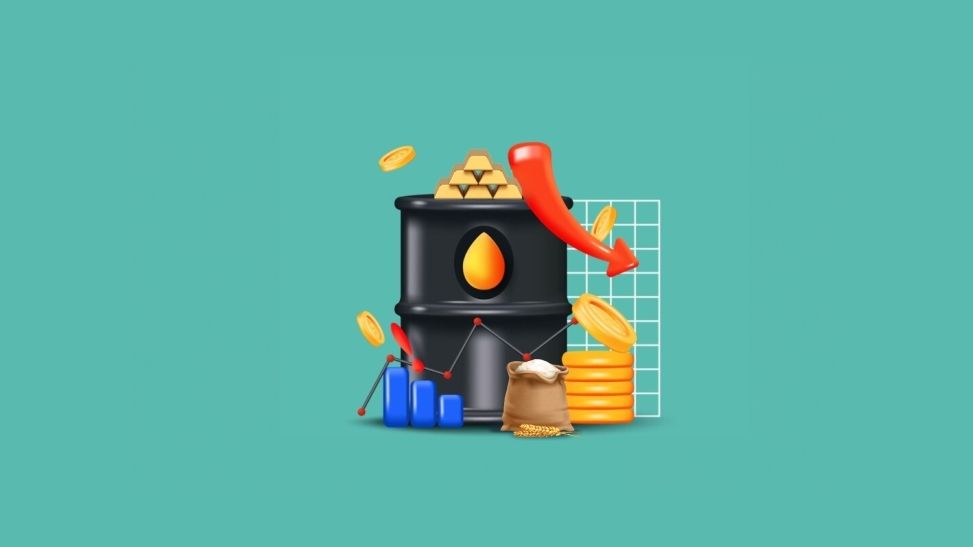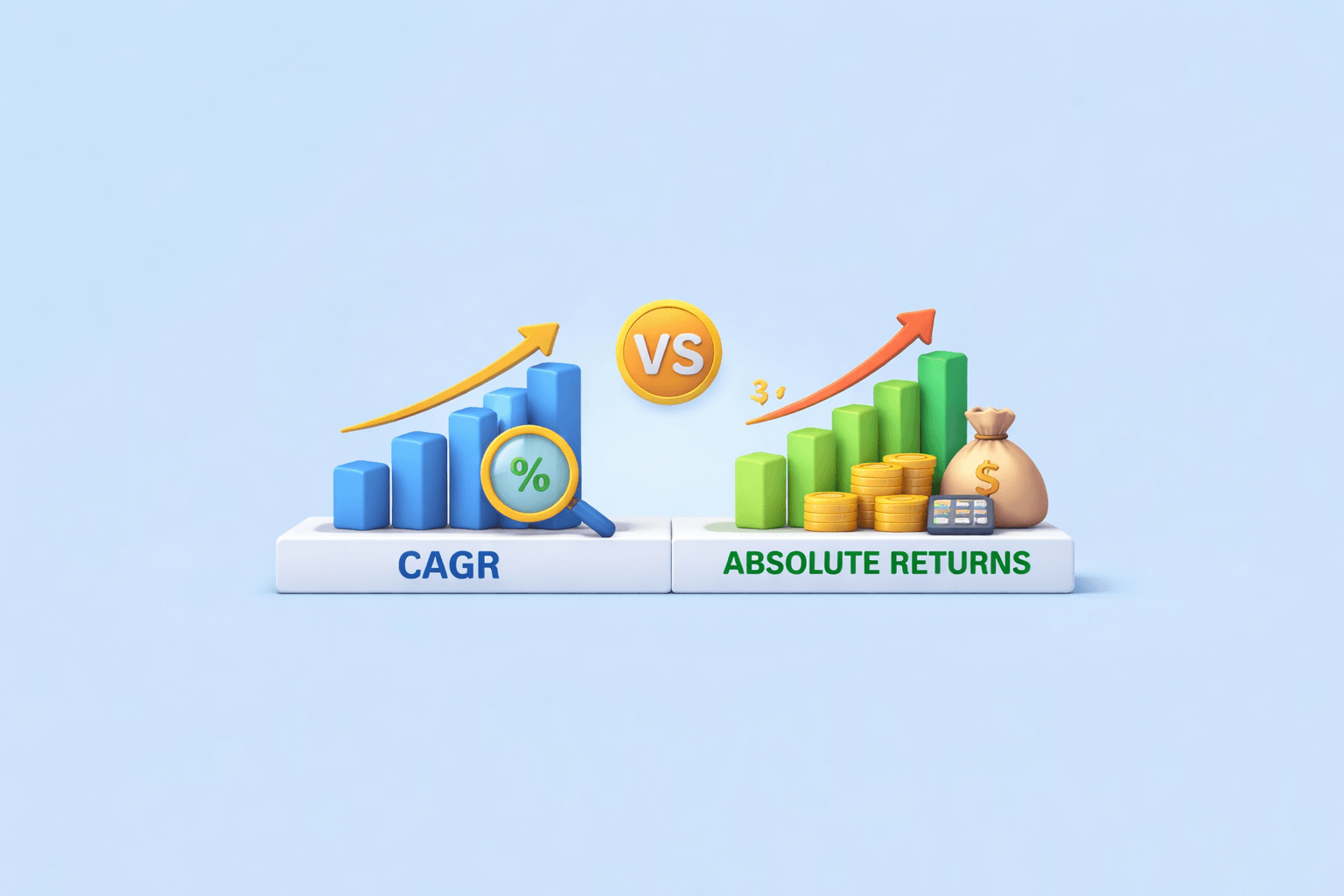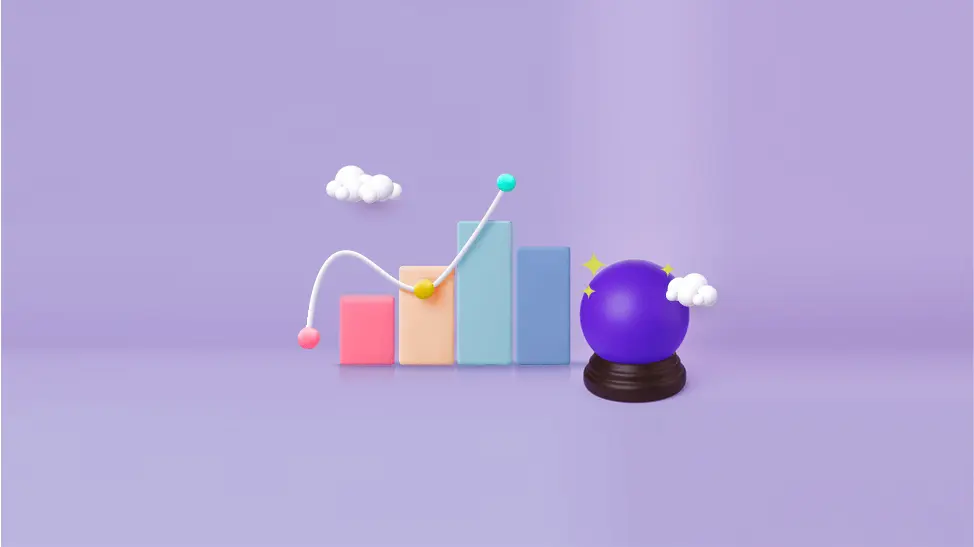- Home
- Blog
- Demat Account
- Commodity Market
- Commodity Market
Commodity Market

- Published Date: September 17, 2024
- Updated Date: October 18, 2025
- By Team Choice
A commodity market is a trading platform where individuals buy, sell, and exchange raw materials and primary goods. It provides opportunities for investors to trade various commodities like crude oil, gold, silver, natural gas, agricultural products, and more. By investing in these commodities, investors can diversify their portfolios and protect against market volatility. Commodity trading online has made it easier than ever for investors to participate in these markets from the comfort of their homes. Tools like a Commodity margin calculator help traders evaluate potential margins and make informed trading decisions.
What is a Commodity Market?
A commodity market enables the exchange of physical goods within a country. Investors looking to diversify their portfolios can invest in both perishable and non-perishable commodities. This not only helps in reducing risk but also offers a safeguard against rising inflation.
What are the Types of Commodities?
Commodities are essential goods traded globally and are categorised into various types based on their characteristics. The types of Commodities are as follows:
Hard Commodities
Hard commodities are natural resources that need to be mined or extracted. The categories are as follows:
- Metals: Gold, Silver, and Copper
- Energy: Oil and Natural Gas
These commodities are vital for industrial processes and often serve as economic indicators. For instance, the demand for oil can reflect industrial activity levels, while gold is considered a safe-haven asset during economic uncertainties.
Soft Commodities
Soft commodities are agricultural products or livestock that are cultivated rather than mined. Its categories are as follows:
- Agriculture: Rice, Wheat, Corn, Cotton, Soybean
- Livestock and Meat: Live Cattle, Feeder Cattle, Egg
These commodities are crucial for food production and other agricultural industries. Their prices can be highly volatile due to factors like weather conditions, diseases, and geopolitical events. For example, a drought can significantly affect the supply of wheat, leading to price fluctuations.
How Does the Commodities Market Work?
In India, while stock markets offer various investment opportunities, the commodity markets provide a secure alternative for investors. These markets display current prices and offers for commodities sourced from dealers who post their bids. The Indian commodity market includes three main segments:
1. Stock Exchanges
These platforms bring together buyers and sellers of commodities. Exchanges maintain an updated list of commodities based on supply and demand, allowing trades to be executed through the exchange, brokers, or online.
2. Brokers
Brokers play a crucial role by facilitating transactions between buyers and sellers. They use their capital to manage risks and ensure smooth trading, operating under contractual agreements with their clients.
3. Forward Contracts
These contracts are agreements between farmers and exporters/importers designed to hedge against price fluctuations and stabilise income and costs.
What is the Difference Between Commodities and Equities?
Commodities and equity are different, and having an idea of the difference is essential. Here’s a table summarising the differences between commodity vs. equity:
Aspect | Commodities | Equities |
Nature of Assets | Physical goods like gold, oil, and agricultural products represent raw materials or resources traded in physical or futures markets. | Shares of ownership in a company: investing means buying a stake in a business and potentially benefiting from its profits and growth. |
Market Influence | Prices are influenced by supply and demand, weather conditions, geopolitical events, and global economic trends. | Stock prices are affected by a company's financial performance, market conditions, industry trends, and broader economic indicators. |
Investment Goals | Used for hedging against inflation, diversifying portfolios, and speculative investments based on price movements. | Sought for long-term growth and income through dividends, offering potential capital appreciation and often a key component of a growth-oriented investment strategy. |
How to Trade in Commodities?
Trading in commodities involves several steps and strategies. Here’s a guide on how to get started:
1. Futures Contracts
These are agreements to buy or sell a commodity at a fixed price on a future date. Traders work with brokers to set up these deals. If the price goes down, sellers can profit. If it goes up, buyers can benefit. Futures can be traded on official exchanges or privately.
2. Options Contracts
These give traders the right, but not the obligation, to buy or sell a commodity at a set price before a specific date. This flexibility allows traders to make money from price changes without completing the trade if they choose not to.
3. Spot Markets
These are markets where commodities are bought and sold for immediate delivery. The transactions are settled “on the spot,” meaning the buyer pays for the commodity and takes possession of it right away. Spot markets are often used for commodities like oil, gold, and agricultural products.
What are the Benefits of the Commodity Market?
The commodity market offers several advantages for investors and producers alike. Here are some key benefits:
1. Diversification
Investing in commodities helps diversify your portfolio beyond stocks and bonds, reducing overall investment risk by spreading your investments across different asset types.
2. Hedging Against Inflation
Commodities, especially physical assets like gold and oil, often retain value during inflationary periods, helping protect your investments from rising prices.
3. Price Discovery
The commodity market helps determine the fair market price of goods through supply and demand dynamics, providing transparency for buyers and sellers.
4. Investment Opportunities
With options like futures and options contracts, investors can capitalise on price fluctuations and potentially earn significant profits from market movements without owning the physical commodity.
Who are the Participants in the Commodity Market?
The commodity market involves various participants who play different roles in trading and managing commodities. Here are two key participants:
1. Producers and Suppliers
Farmers, miners, and energy producers who produce raw materials like grains, metals, and oil. They participate in the commodity market to sell their products and manage price risks through futures or forward contracts, ensuring they get fair prices and stable income.
2. Traders and Investors
Traders buy and sell commodities to profit from price changes using futures or options contracts. Investors, including individuals and institutions, use commodities to diversify their portfolios and hedge against inflation. They might trade directly on exchanges or through brokers.
What are the Factors That Impact the Commodity Market?
The commodity market is influenced by various factors that affect the prices and trading of raw materials. Key factors include:
1. Supply and Demand
The balance between supply and demand is crucial in determining commodity prices. High or low supply can drive prices up, while excess or reduced demand can lower prices. For example, a poor harvest can decrease agricultural commodity supply, increasing prices.
2. Geopolitical Events
Political instability, conflicts, and trade policies can disrupt supply chains and affect commodity prices. For instance, tensions in oil-producing regions can lead to higher oil prices due to concerns about supply disruptions.
3. Economic Indicators
Economic factors like inflation, interest rates, and GDP growth influence commodity markets. Inflation often increases commodity prices as investors seek tangible assets to protect their wealth. Conversely, higher interest rates can reduce investment in commodities.
4. Weather Conditions
Extreme weather events like droughts, floods, and storms can significantly impact agricultural production and commodity prices. For example, a severe drought can damage crops, reduce supply, and increase prices for affected commodities.
Why Investors Should Invest in Commodity Markets?
Investing in commodity markets offers unique benefits that can enhance an investor's portfolio. Here are key reasons why it might be a good choice:
1. Diversification
Commodities provide a way to diversify investments beyond traditional stocks and bonds. This helps spread risk, as commodities often behave differently from other asset classes, reducing overall portfolio volatility.
2. Inflation Hedge
Commodities, such as gold and oil, tend to hold value or increase in price during inflationary periods. Investing in these assets can protect your portfolio from the eroding effects of rising prices.
3. Potential for High Returns
Commodity prices can fluctuate significantly, creating opportunities for substantial gains. Investors can capitalise on these price movements through futures and options contracts.
4. Global Market Exposure
Commodities offer a unique window into global markets and economies, allowing investors to feel connected to and benefit from economic growth and demand trends in different regions beyond their local markets.
What are the Limitations of the Commodity Market?
While the commodity market offers many opportunities, it also has limitations. Here are some key challenges:
1. High Volatility
Commodity prices can be highly volatile, influenced by geopolitical events, weather conditions, and market speculation. This volatility can lead to significant price swings, posing risks for investors unprepared for sudden changes.
2. Complexity of Trading
Trading commodities involves understanding complex instruments like futures and options contracts. Investors must navigate intricate market dynamics and may require specialised knowledge and strategies to succeed, making it less accessible for beginners.
3. Market Manipulation Risks
The commodity market can be susceptible to manipulation by large traders or institutions. This can distort prices and create unfair conditions for smaller investors, impacting market integrity and fairness.
The Key Takeaway
The commodity market presents unique investment opportunities and benefits, such as diversification, inflation protection, and potential high returns. However, it comes with challenges, including high volatility, trading complexity, and manipulation risks.
By understanding these factors and carefully managing risks, investors can make informed decisions and effectively incorporate commodities into their portfolios for enhanced financial stability and growth. Do you want to know more about the commodity market? If yes, then read the Choice blogs to know more.
FAQs
Q1. What are commodities?
Commodities are raw materials or primary goods traded in markets, including agricultural products (like wheat and coffee), metals (such as gold and copper), and energy resources (like crude oil and natural gas). They are essential for various industries and everyday use.
Q2. How can I start investing in commodities?
To start investing in commodities, you can use futures or options contracts through a brokerage account. It’s important to research the markets, understand the contracts, and consider consulting with a financial advisor to develop a strategy that suits your investment goals.
Q3. What factors affect commodity prices?
Commodity prices are influenced by supply and demand, geopolitical events, economic indicators, and weather conditions. For instance, a drought can affect agricultural commodity prices, while geopolitical tensions can impact oil prices.
Q4. Are commodities a good hedge against inflation?
Yes, commodities can act as a hedge against inflation. Physical assets like gold and oil often retain or increase their value when inflation rises, protecting your investment’s purchasing power during periods of rising prices.
Q5. What are the risks of investing in commodities?
Investing in commodities involves risks such as high volatility, market manipulation, and trading complexity. Prices can fluctuate significantly due to various factors, and trading requires a good understanding of the market and its instruments to manage these risks effectively.
Recommended for you

CAGR Vs Absolute Returns in Mutual Funds: Key Differences You Should Know

FII DII Data - Live Data

Share Market Prediction For Tomorrow
